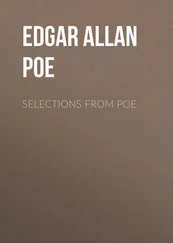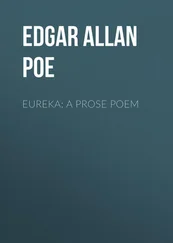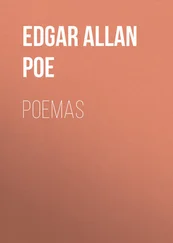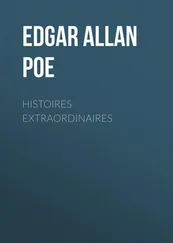Edgar Poe - Loss of Breath
Здесь есть возможность читать онлайн «Edgar Poe - Loss of Breath» весь текст электронной книги совершенно бесплатно (целиком полную версию без сокращений). В некоторых случаях можно слушать аудио, скачать через торрент в формате fb2 и присутствует краткое содержание. Жанр: Классическая проза, Юмористическая проза, на английском языке. Описание произведения, (предисловие) а так же отзывы посетителей доступны на портале библиотеки ЛибКат.
- Название:Loss of Breath
- Автор:
- Жанр:
- Год:неизвестен
- ISBN:нет данных
- Рейтинг книги:5 / 5. Голосов: 1
-
Избранное:Добавить в избранное
- Отзывы:
-
Ваша оценка:
- 100
- 1
- 2
- 3
- 4
- 5
Loss of Breath: краткое содержание, описание и аннотация
Предлагаем к чтению аннотацию, описание, краткое содержание или предисловие (зависит от того, что написал сам автор книги «Loss of Breath»). Если вы не нашли необходимую информацию о книге — напишите в комментариях, мы постараемся отыскать её.
Loss of Breath — читать онлайн бесплатно полную книгу (весь текст) целиком
Ниже представлен текст книги, разбитый по страницам. Система сохранения места последней прочитанной страницы, позволяет с удобством читать онлайн бесплатно книгу «Loss of Breath», без необходимости каждый раз заново искать на чём Вы остановились. Поставьте закладку, и сможете в любой момент перейти на страницу, на которой закончили чтение.
Интервал:
Закладка:
Loss of Breath
By Edgar Allan Poe
O Breathe not, etc.
Moore's Melodies
The most notorious ill-fortune must in the end yield to the untiring courage of philosophy—as the most stubborn city to the ceaseless vigilance of an enemy. Shalmanezer, as we have it in holy writings, lay three years before Samaria; yet it fell. Sardanapalus—see Diodorus—maintained himself seven in Nineveh ; but to no purpose. Troy expired at the close of the second lustrum; and Azoth, as Aristaeus declares upon his honour as a gentleman, opened at last her gates to Psammetichus, after having barred them for the fifth part of a century….
"Thou wretch!—thou vixen!—thou shrew!" said I to my wife on the morning after our wedding; "thou witch!—thou hag!—thou whippersnapper—thou sink of iniquity!—thou fiery-faced quintessence of all that is abominable!—thou—thou—" here standing upon tiptoe, seizing her by the throat, and placing my mouth close to her ear, I was preparing to launch forth a new and more decided epithet of opprobrium, which should not fail, if ejaculated, to convince her of her insignificance, when to my extreme horror and astonishment I discovered that I had lost my breath.
The phrases "I am out of breath," "I have lost my breath," etc., are often enough repeated in common conversation; but it had never occurred to me that the terrible accident of which I speak could bona fide and actually happen! Imagine—that is if you have a fanciful turn—imagine, I say, my wonder—my consternation—my despair!
There is a good genius, however, which has never entirely deserted me. In my most ungovernable moods I still retain a sense of propriety, et le chemin des passions me conduit—as Lord Edouard in the "Julie" says it did him—a la philosophie veritable.
Although I could not at first precisely ascertain to what degree the occurence had affected me, I determined at all events to conceal the matter from my wife, until further experience should discover to me the extent of this my unheard of calamity. Altering my countenance, therefore, in a moment, from its bepuffed and distorted appearance, to an expression of arch and coquettish benignity, I gave my lady a pat on the one cheek, and a kiss on the other, and without saying one syllable (Furies! I could not), left her astonished at my drollery, as I pirouetted out of the room in a Pas de Zephyr.
Behold me then safely ensconced in my private boudoir, a fearful instance of the ill consequences attending upon irascibility—alive, with the qualifications of the dead—dead, with the propensities of the living—an anomaly on the face of the earth—being very calm, yet breathless.
Yes! breathless. I am serious in asserting that my breath was entirely gone. I could not have stirred with it a feather if my life had been at issue, or sullied even the delicacy of a mirror. Hard fate!—yet there was some alleviation to the first overwhelming paroxysm of my sorrow. I found, upon trial, that the powers of utterance which, upon my inability to proceed in the conversation with my wife, I then concluded to be totally destroyed, were in fact only partially impeded, and I discovered that had I, at that interesting crisis, dropped my voice to a singularly deep guttural, I might still have continued to her the communication of my sentiments; this pitch of voice (the guttural) depending, I find, not upon the current of the breath, but upon a certain spasmodic action of the muscles of the throat.
Throwing myself upon a chair, I remained for some time absorbed in meditation. My reflections, be sure, were of no consolatory kind. A thousand vague and lachrymatory fancies took possesion of my soul– and even the idea of suicide flitted across my brain; but it is a trait in the perversity of human nature to reject the obvious and the ready, for the far-distant and equivocal. Thus I shuddered at self-murder as the most decided of atrocities while the tabby cat purred strenuously upon the rug, and the very water dog wheezed assiduously under the table, each taking to itself much merit for the strength of its lungs, and all obviously done in derision of my own pulmonary incapacity.
Oppressed with a tumult of vague hopes and fears, I at length heard the footsteps of my wife descending the staircase. Being now assured of her absence, I returned with a palpitating heart to the scene of my disaster.
Carefully locking the door on the inside, I commenced a vigorous search. It was possible, I thought, that, concealed in some obscure corner, or lurking in some closet or drawer, might be found the lost object of my inquiry. It might have a vapory—it might even have a tangible form. Most philosophers, upon many points of philosophy, are still very unphilosophical. William Godwin, however, says in his "Mandeville," that "invisible things are the only realities," and this, all will allow, is a case in point. I would have the judicious reader pause before accusing such asseverations of an undue quantum of absurdity. Anaxagoras, it will be remembered, maintained that snow is black, and this I have since found to be the case.
Long and earnestly did I continue the investigation: but the contemptible reward of my industry and perseverance proved to be only a set of false teeth, two pair of hips, an eye, and a bundle of billets-doux from Mr. Windenough to my wife. I might as well here observe that this confirmation of my lady's partiality for Mr. W. occasioned me little uneasiness. That Mrs. Lackobreath should admire anything so dissimilar to myself was a natural and necessary evil. I am, it is well known, of a robust and corpulent appearance, and at the same time somewhat diminutive in stature. What wonder, then, that the lath-like tenuity of my acquaintance, and his altitude, which has grown into a proverb, should have met with all due estimation in the eyes of Mrs. Lackobreath. But to return.
My exertions, as I have before said, proved fruitless. Closet after closet—drawer after drawer—corner after corner—were scrutinized to no purpose. At one time, however, I thought myself sure of my prize, having, in rummaging a dressing-case, accidentally demolished a bottle of Grandjean's Oil of Archangels—which, as an agreeable perfume, I here take the liberty of recommending.
With a heavy heart I returned to my boudoir—there to ponder upon some method of eluding my wife's penetration, until I could make arrangements prior to my leaving the country, for to this I had already made up my mind. In a foreign climate, being unknown, I might, with some probability of success, endeavor to conceal my unhappy calamity—a calamity calculated, even more than beggary, to estrange the affections of the multitude, and to draw down upon the wretch the well-merited indignation of the virtuous and the happy. I was not long in hesitation. Being naturally quick, I committed to memory the entire tragedy of "Metamora." I had the good fortune to recollect that in the accentuation of this drama, or at least of such portion of it as is allotted to the hero, the tones of voice in which I found myself deficient were altogether unnecessary, and the deep guttural was expected to reign monotonously throughout.
I practised for some time by the borders of a well frequented marsh;—herein, however, having no reference to a similar proceeding of Demosthenes, but from a design peculiarly and conscientiously my own. Thus armed at all points, I determined to make my wife believe that I was suddenly smitten with a passion for the stage. In this, I succeeded to a miracle; and to every question or suggestion found myself at liberty to reply in my most frog-like and sepulchral tones with some passage from the tragedy—any portion of which, as I soon took great pleasure in observing, would apply equally well to any particular subject. It is not to be supposed, however, that in the delivery of such passages I was found at all deficient in the looking asquint—the showing my teeth—the working my knees—the shuffling my feet—or in any of those unmentionable graces which are now justly considered the characteristics of a popular performer. To be sure they spoke of confining me in a strait-jacket—but, good God! they never suspected me of having lost my breath.
Читать дальшеИнтервал:
Закладка:
Похожие книги на «Loss of Breath»
Представляем Вашему вниманию похожие книги на «Loss of Breath» списком для выбора. Мы отобрали схожую по названию и смыслу литературу в надежде предоставить читателям больше вариантов отыскать новые, интересные, ещё непрочитанные произведения.
Обсуждение, отзывы о книге «Loss of Breath» и просто собственные мнения читателей. Оставьте ваши комментарии, напишите, что Вы думаете о произведении, его смысле или главных героях. Укажите что конкретно понравилось, а что нет, и почему Вы так считаете.









